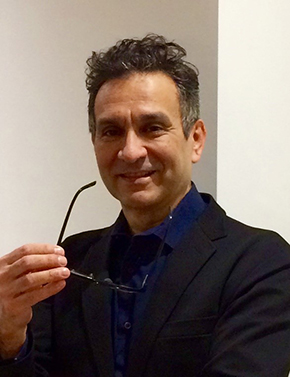THE THIRD INTERNATIONAL SYMPOSIUM
ON THERMAL-FLUID DYNAMICS 2022
(ISTFD 2022 )

THE THIRD INTERNATIONAL SYMPOSIUM
ON THERMAL-FLUID DYNAMICS 2022
(ISTFD 2022 )

Demetrios Papageorgiou
Department of Mathematics, Imperial CollegeLondon, SW7 2BY, UK
Demetrios Papageorgiou is a Professor of Mathematics at Imperial College London. His undergraduate and PhD degrees are in Mathematics (University College London and Imperial College London). Prior to joining Imperial College in 2008, he spent his academic career in the US at the Courant Institute of New York University, the Levich Institute of the City College of New York, and the New Jersey Institute of Technology where he was a Distinguished Professor. His research interests centre on physical applied mathematics and in particular theoretical and computational fluid mechanics including waves and interfacial flows incorporating effects such as surfactants, electric and magnetic fields, and viscoelasticity. He is a Fellow of the American Physical Society and a Fellow of the Institute of Mathematics and its Applications. He is co-Editor in Chief of the IMA Journal of Applied Mathematics and served as an Associate Editor for the SIAM Journal on Applied Mathematics. He has had a long association with ICASE, NASA Langely Research Center, where he was a joint recipient of the NASA Group Achievement Award as a member of the ICASE Fluid Mechanics Group. His research has been funded over the years by AFOSR, EPSRC, NASA and NSF.
Title: Feedback and Optimal Control of Falling Film Flows
Abstract: Falling liquid film flows are ubiquitous in applications. They can become unstable with waves forming on the liquid-air interface. The spatial instabilities evolve to nonlinear two- and three-dimensional patterns with spatiotemporal chaotic characteristics. In applications such as coating it is beneficial to suppress the instabilities, while in applications such as heat or mass transfer interfacial waves can be useful. It is of interest, therefore, to be able to control such complex flows. This talk will present feedback and optimal control strategies to manipulate such flows. This will be done from first principles where actuation is either through mass injection at the wall or external electric fields. Asymptotic methods will be used to derive reduced order models whose solutions are compared with direct numerical simulations. It will be shown that the models do a very good job in identifying control protocols for falling film flows. It is also shown theoretically that appropriate controls can be designed to access and stabilise nonlinear coherent structures that are inherently unstable, thus opening the way of “dialling up” desired unstable solutions that may have particular physical relevance, for example being the most beneficial in heat or mass transfer.